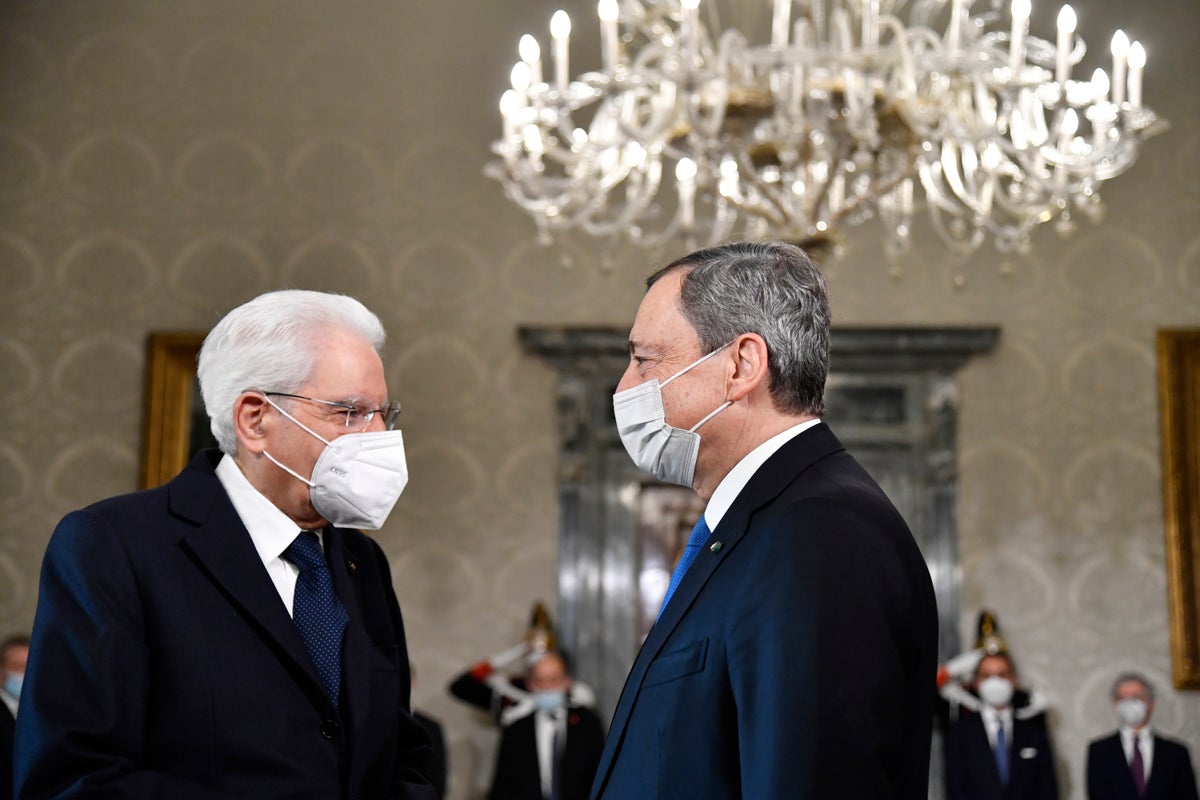
Italian Premier Mario Draghi was deciding Wednesday whether to confirm his resignation or reconsider appeals to rebuild his parliamentary majority after the populist 5-Star Movement triggered a crisis in the government by withholding its support.
Draghi was delivering a speech before the upper chamber of Parliament on Wednesday morning that was expected to lay out his assessment of the situation after days of chaotic behind-the-scenes meetings among Italy’s political leaders, appeals for Draghi to stay on and continued fracturing within the 5-Stars.
There was no clarity on how the day would play out: After Draghi speaks to the Senate, lawmakers will have the chance to reply and Draghi the chance to respond. Will he dig in and confirm his resignation? Or will he stay on and lead Italy until the natural close of the legislature's five-year term and elections in the spring?
Watching over the scene from the presidential palace on the Quirinale Hill is President Sergio Mattarella, who ultimately can decide whether to accept Draghi’s resignation if it is offered again, ask him or someone else to try to govern until the spring vote or dissolve Parliament now and trigger early elections as soon as September.
Mattarella had tapped Draghi in 2021 to form a government of national unity, grouping parties from the right, left and the 5-Stars to guide Italy through its economic reboot following the pandemic and enact reforms necessary to implement some 200 billion euros in European Union recovery funds.
The uneasy coalition worked for a while but Draghi offered his resignation last week after the 5-Star lawmakers, the biggest vote-getters in 2018 general elections, boycotted a confidence vote. The trigger was their opposition to a trash incinerator for Rome contained in the bill, but their beef with Draghi’s government went well beyond that.
Five-Star leader Giuseppe Conte, who complained his forces had been humiliated and ignored by other coalition parties, delivered a nine-point set of demands for Draghi to embrace, including the 5-Stars’ flagship pledge of a basic income and minimum salary.
Draghi had long insisted he would never head a second government or one without the 5-Stars, and said flatly last week that he wouldn’t govern by ultimatum.
But Draghi technically won the confidence vote, appears to still have the numbers to govern and has been under pressure to reconsider both inside and out of Italy, especially since the 5-Stars have continued to fracture over the crisis.
Political leaders, mayors, doctors’ associations and ordinary citizens have urged him to stay on at such a crucial time, with soaring inflation and energy prices, a war in Ukraine and implementation of the EU recovery funds.
Former Premier Mario Monti, who himself was tapped to lead Italy in a moment of crisis, appealed to Draghi’s ego, saying the internationally respected former European Central Bank chief would irrevocably harm his legacy if he abandoned Italy now.
“Draghi’s bitterness over the petty games played by various parties is completely understandable,” Monti wrote on the front page of Corriere della Sera. But he warned that Draghi “would show a lack of respect to the country and its citizens” if he followed through and stepped down.







